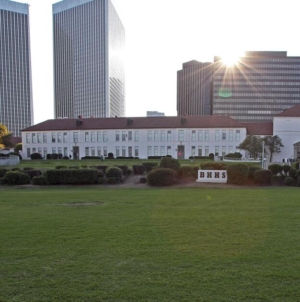-
WWE Superstar Karl Anderson Out Until Wrestlemania Due to Injury - 36 mins ago
-
Beverly Hills High limits gatherings in wake of Trump celebrations - 40 mins ago
-
Prince William says 2024 ‘has been the hardest year in my life’ - 49 mins ago
-
2024 NFL odds: AFC North sees huge shift after Thursday night result - 52 mins ago
-
Parting Shot: Donald Trump’s Historic Week and Its Impact on Pop Culture - about 1 hour ago
-
He thought he’d found Amelia Earhart’s plane. It was a pile of rocks - about 1 hour ago
-
Truckers to haul US Capitol Christmas tree from Alaska to DC, plus our latest American Culture Quiz - about 1 hour ago
-
Dolly Parton wants Kate Middleton and royal family to try her cooking at Dollywood this Thanksgiving - about 1 hour ago
-
Bears set to host Patriots, what happens if Drake Maye out plays Caleb Williams? | The Facility - 2 hours ago
-
First person in Australia to be jailed for Nazi salute is unrepentant - 2 hours ago
La Cañada Flintridge loses ruling on affordable-housing plan
A court ruled on Monday that La Cañada Flintridge violated the state Housing Accountability Act when it denied an application for an affordable-housing project last year.
Under the ruling, the city will be forced to process the application, which was filed under a little-known but increasingly relevant provision in California housing law known as “builder’s remedy.” The provision serves as a punishment for cities that are out of compliance with housing element regulations that require local governments to develop specific zoning plans to address population increases.
Builder’s remedy is a massive boon for developers, allowing them to build whatever they want — even outside local zoning restrictions — so long as it has a certain number of low- or middle-income units.
The proposed project in this case, located at 600 Foothill Blvd., would replace an aging Christian Science church with a five-story building that includes 80 mixed-income units and a 14-room hotel, totaling nearly 120,000 square feet, bringing density and affordable housing to a city that has very little.
La Cañada is a city of single-family homes, and the average value is $2.317 million, according to Zillow. It has added virtually no multifamily housing in recent years, and as a result, the population has hovered around 20,000 for the last four decades while surrounding communities swelled with residents.
The court’s decision is a big win for affordable-housing advocates as well as the developers behind the project, who’ve been fighting to get the multiuse development approved for nearly half a decade.
It’s a setback for officials and others in the city who have resisted the project, drawing criticisms of having a “not in my backyard” attitude along the way.
“La Cañada Flintridge is the latest community that has failed in their effort to override state housing laws. Today’s favorable ruling should serve as a warning to other NIMBY jurisdictions that the state will hold every community accountable in planning for their fair share of housing,” Gov. Gavin Newsom said in a statement.
Newsom, along with state Atty. Gen. Rob Bonta, had intervened in the situation in December, filing a legal action asking the court to reverse the city’s denial of the project.
“We are pleased that the court agrees with us that La Cañada Flintridge must follow state housing laws to facilitate affordable housing and alleviate our housing crisis,” Bonta said in a statement. “The California Department of Justice is committed to enforcing state laws that increase housing supply and affordability.”
The three partners behind the project have strong ties to the city: Alexandra Hack grew up in the area; Garret Weyand lives a few blocks from the site; and Jonathan Curtis was once the mayor.
“This should be a sign for other cities that may be thinking about taking similar steps to La Cañada on builder’s remedy applications,” Weyand said. “The city’s reluctance to do this is one of the reasons housing is so expensive to build and develop in California.”
The trio filed the application under the builder’s remedy provision in November 2022, but city officials rejected it. They claimed La Cañada wasn’t subject to the provision since it had already “self-certified” its housing element plan, which had yet to be approved by the state Department of Housing and Community Development.
The city has since come into compliance, but because the developers submitted their application before Housing and Community Development approved La Cañada’s housing element plan, the builder’s remedy provision remained an option.
“Builder’s remedy is probably going to be one of most successful laws to build housing in the state of California,” Weyand said.
Source link































